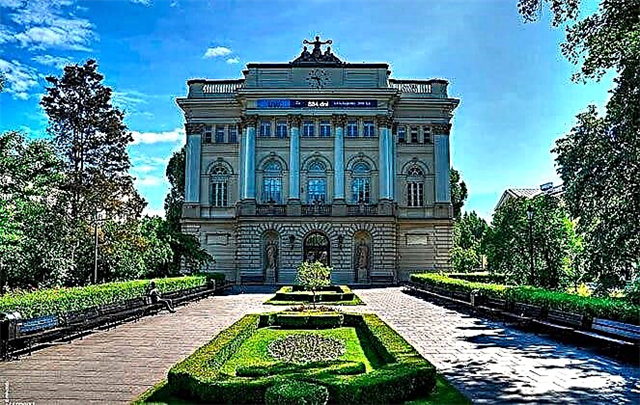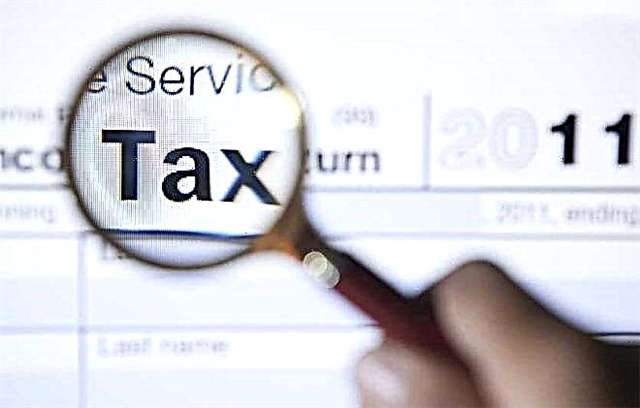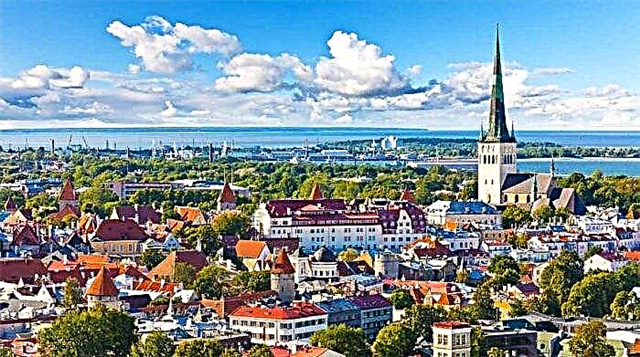The Republic of Estonia is a state that is a member of the European Union, Schengen zone, NATO. A residence permit in Estonia in the minds of many modern Russians is associated with the ability to move freely across Europe.

What are the privileges provided by a residence permit in Estonia
Many potential immigrants are interested in what prospects will open before them if they move to the Republic of Estonia. First of all, we are talking about:
- the possibility of visa-free entry to the territory of the countries of the European Union;
- possession of a European ID-card, which can be used as an identity document throughout the European Union;
- the prospect of obtaining citizenship of the Republic of Estonia;
- the right to receive higher education at the European level;
- official employment with a decent level of wages;
- business opportunities in favorable tax conditions;
- social safety and security.
This is what the Estonian residence permit gives to its owner.
On what grounds can one obtain an Estonian residence permit
According to the provisions of Estonian law, foreign citizens planning to stay on the territory of the state for more than three months must obtain a residence permit - an official long-term residence permit.
The applicant must be:
- law-abiding citizen;
- loyal to the sovereignty of the Republic of Estonia;
- adults (persons under the age of 18 need a notarized parental permission to emigrate).
 In addition, it should be remembered that an Estonian residence permit is provided for financially independent persons. This means that the applicant must have legal sources of stable income that will allow them to live abroad.
In addition, it should be remembered that an Estonian residence permit is provided for financially independent persons. This means that the applicant must have legal sources of stable income that will allow them to live abroad.
There are several options for obtaining a residence permit in Estonia.
One of the easiest ways to obtain a residence permit is to reunite with your family.
It can be used by anyone who has close relatives in the Republic:
- spouse;
- parents;
- minor child;
- an adult child requiring parent / guardian care for health reasons;
- grandparents in need of care.
One of the most common ways to obtain a residence permit in Estonia is through official employment on its territory. This option is available to foreigners who have signed a contract with an employer for a period of at least 12 months or have received an official invitation to work. In this case, the monthly salary must be at least 1,321 euros.
To understand the state of migration processes in the world as a whole, the article "Main trends in modern labor migration" will help.
You can also apply for a residence permit in Estonia when opening a company. An entrepreneur must invest in the Estonian economy from 16,000 euros in case of starting his own business, or from 65,000 euros - when participating in a partnership. In addition, it must be proven that the invested financial resources were received legally. Foreign entrepreneurs opening their companies in Estonia enjoy tax incentives.
The taxation system is described in detail in the article “Tax system in Estonia: simple and effective”.
In 2021, the Estonian government launched a program aimed at issuing start-up visas to foreign citizens. To apply for such a visa, you must have an income of 130 euros per month and develop a promising business project. A specially created startup committee evaluates the quality of projects.
The article “Business Abroad: Where and How to Start Your Own Business” will tell you in detail about the possibilities of starting a business in developed countries, problems and ways to solve them.
 After approval, the project must be verified (confirmed) by the Estonian Ministry of Economy. Applicants who are not residents of the European Union countries can obtain a residence permit under a startup program lasting from one to five years.
After approval, the project must be verified (confirmed) by the Estonian Ministry of Economy. Applicants who are not residents of the European Union countries can obtain a residence permit under a startup program lasting from one to five years.
Investing in real estate in Estonia is not a sufficient condition for granting a residence permit, unlike many other countries where one can apply for such status when buying real estate.
It is about these countries that the article “How to get a residence permit when buying real estate in 2021” tells.
Students of local universities, participants in volunteer projects and internships in the country are entitled to obtain a residence permit in Estonia. Also, a sufficient condition for obtaining a residence permit is scientific activity in the Republic.
The level of education is competitive here, and tuition fees are quite liberal - from 1,500 euros per academic year. There are free higher education programs for talented students.
The Estonian authorities grant residence permits to refugees - foreigners for whom returning to their home country is associated with a real threat to their lives. We are talking about people who became victims of persecution for political, racial, religious reasons and were forced to urgently leave their homeland.
Estonian legislation also provides for the so-called special cases of granting a residence permit to foreigners. In particular, this status can be claimed by people of value to the Republic: athletes, scientists, writers, actors.
Countries that grant a residence permit are easier than Estonia is described in the article “Where to get a residence permit is the fastest and easiest way”.
Take a sociological survey!
Registration procedure
Answering the question about how to obtain a residence permit in Estonia in 2021, it should be noted that documents are submitted to the consular department of the Estonian Embassy in the Russian Federation. You must first make an appointment with the consul. This can be done online on the official website of the Embassy.
Package of documents
The package of official papers that a foreigner must submit when applying for a residence permit in Estonia consists of:
- completed application form;

- autobiography;
- foreign passport;
- two photographs 35 × 45 mm;
- police clearance certificates;
- certificates of marital status;
- birth certificates of children (if any);
- bank statements to confirm financial solvency;
- receipts for payment of state fees.
The above list of documents is general. Employees of the Estonian Embassy may request specific documents from different categories of applicants.
For example, for pensioners this is a pension certificate and a certificate of the amount of pension received on the territory of Russia, for students - a contract with an Estonian higher education institution and a receipt for payment of tuition fees, for employees - a contract with an Estonian employer, an invitation from him and an official permit. to work.
How long does the registration take and what is the cost of the procedure?
The process of considering an application for an Estonian residence permit for Russians lasts no more than two months. To this deadline, you need to add two weeks for sending the package of documents from the Estonian Embassy to the Police Bureau and two weeks for their return delivery.
After receiving an approving response, the applicant must arrive in Estonia within a month and register at the place of residence. Failure to comply with this condition may result in a technical refusal to provide a residence permit.
To obtain a residence permit, you must pay a state fee. Its size is 150 euros. You will also need to pay for the translation of documents into Estonian, their certification with an apostille.The cost of such services will depend on the prices of the translation agency.
What to do if a residence permit is refused
 According to Estonian law, the ratio of the number of foreigners and citizens of the country should not exceed 0.01%. Therefore, the state has introduced a quota for the issuance of a residence permit to foreign citizens. In practice, no more than 1,000 applicants from different countries can get a residence permit annually.
According to Estonian law, the ratio of the number of foreigners and citizens of the country should not exceed 0.01%. Therefore, the state has introduced a quota for the issuance of a residence permit to foreign citizens. In practice, no more than 1,000 applicants from different countries can get a residence permit annually.
A foreigner's application for a residence permit in Estonia may be rejected if:
- lack of sufficient grounds for immigration;
- providing an incomplete package of documents;
- submission of false information;
- lack of financial resources sufficient to live in Estonia;
- the presence of socially dangerous diseases;
- being on the national / international wanted list;
- past convictions;
- identifying links with extremist groups.
The reason why the decision was made to refuse an applicant to provide a residence permit is always announced. Within ten days after this, the applicant has the right to apply to the migration service or the court to appeal the decision.
A valid residence permit in Estonia can be canceled if its holder:
- committed an offense;
- acted against the interests of the Estonian nation;
- has committed acts that threaten the sovereignty of the state;
- submitted false information about himself to any authority;
- personally applied for the cancellation of the residence permit;
- acquired the right to permanent residence (permanent residence) in Estonia or became a citizen of this country.
If a foreigner believes that his residence permit was canceled unlawfully, he has the right to appeal against the deprivation of his status in court within three days. Otherwise, you need to voluntarily leave the territory of the state within the specified period. Otherwise, the offender will be detained by Estonian law enforcement agencies, obliged to pay a fine and expelled from the country.
What status can a residence permit holder apply for?
 The first time a residence permit is often issued for a period of one to two years. If a foreign citizen plans to stay in Estonia after this period, he must submit an application for an extension of the residence permit.
The first time a residence permit is often issued for a period of one to two years. If a foreign citizen plans to stay in Estonia after this period, he must submit an application for an extension of the residence permit.
This must be done three months before the expiration of a valid residence permit. In the application, the reasons for the renewal of the status must be justified. The residence permit can be extended for 5 years.
If a foreigner holding a residence permit has been in Estonia for more than six consecutive months during the last five years each year (i.e. 183 + 1 days), he / she can apply for a permanent residence permit. In addition to complying with the residency requirement, you must have a legal source of income in the country, health insurance.
To understand the essence of the terms residence permit, permanent residence, citizenship will help the article "residence permit, permanent residence, citizenship: concepts, features, differences".
Foreigners who have legally lived in Estonia for eight years have the prospect of obtaining citizenship. To do this, you need to have a valid residence permit in the country, not leave the territory of Estonia for the last five years, successfully pass the exam on knowledge of the Estonian language and the Constitution (according to reviews, the test is quite difficult), and also renounce your previous citizenship.
Countries allowing a second passport are discussed in the article “In which countries dual citizenship is allowed: current list for 2021”.
Outcomes
It is not easy to obtain a residence permit in Estonia due to the availability of quotas, but, nevertheless, it is quite possible. Moving to this country for a long-term residence can be the best option for many businessmen, employees, students, scientists, representatives of creative professions. Lack of corruption, high-quality education, low crime rate, access to state subsidies, reasonable prices combined with a decent level of wages - these are the main advantages of living in the Republic of Estonia.












